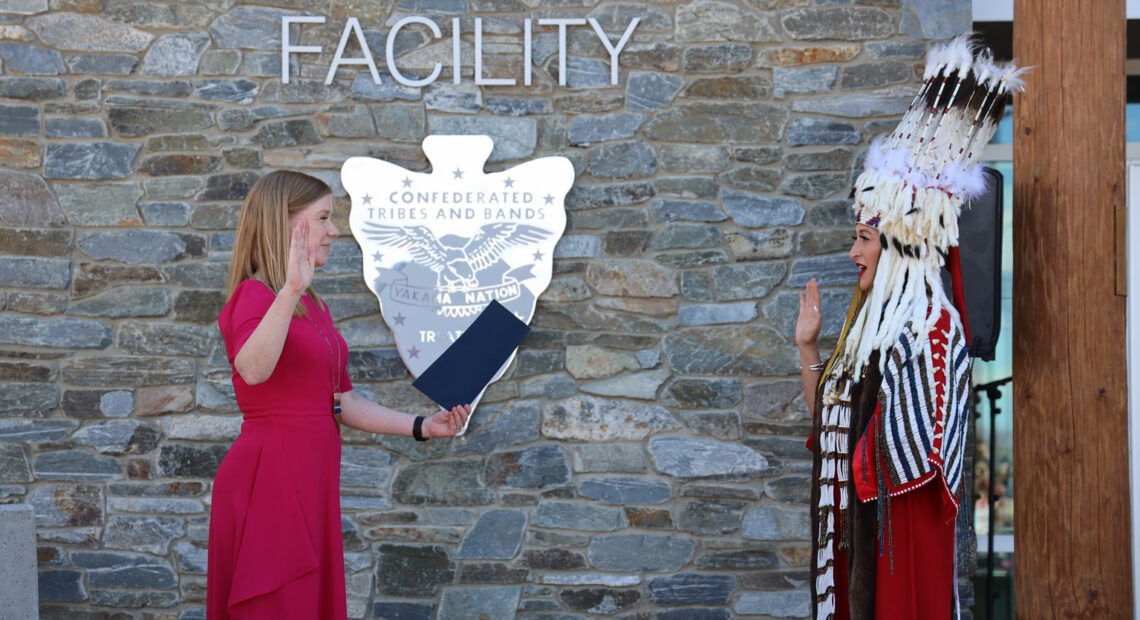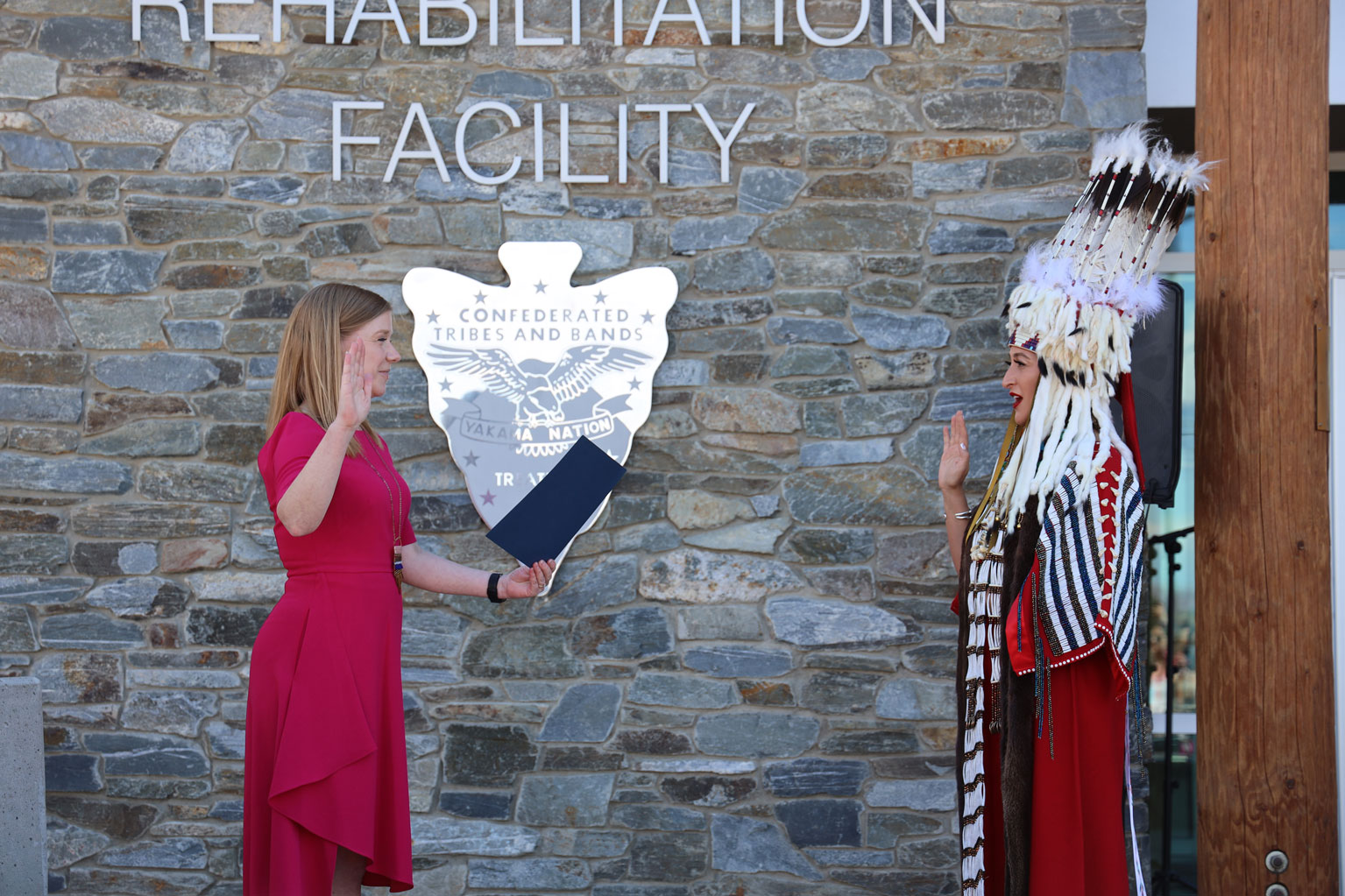
New Assistant U.S. Attorney speaks about work with Indigenous communities
Listen
(Runtime 4:00)
Read
Bree Black Horse has been working as the Assistant U.S. Attorney dedicated to prosecuting Missing and Murdered Indigenous People cases in the Northwest.
Black Horse joined the Office as part of the U.S. Department of Justice’s Missing or Murdered Indigenous Persons Regional Outreach Program.
It focuses on collaboration among tribal, federal and state governmental and other partners. She will prosecute cases throughout Washington state, Oregon, Montana, Idaho and California.
In May, Black Horse was sworn in at the U.S. Attorney’s Office for the Eastern District of Washington, dressed in traditional regalia.
At the ceremony, she wore a traditional red wool dress.
“I wore that red dress to reflect MMIP. That’s often the color associated with this movement, with this cause. I made that red dress for that reason a few years ago,” Black Horse said.
She also wore her war bonnet.
“I wanted to wear that too, as a sign of my commitment to this work and to the community,” Black Horse said.
Her regalia also carries her mother’s touch.
“Whenever she makes regalia for me, with each bead she sews, with each stitch she puts into the fabric, is a prayer both for protection and encouragement,” she said.
Black Horse said being a prosecutor focused on Missing and Murdered Indigenous People cases is the high spot of her career.
“This could be a new and unique way that I could not only meaningfully serve our tribal communities, but address the Missing and Murdered Indigenous Person crisis that we are experiencing and have been experiencing for a long time in Indian country,” she said.
In Yakima, where she is based, the community has been severely impacted by the Missing and Murdered Indigenous People crisis.
According to the Washington State Patrol, as May 2024 there are 122 active cases of Missing or Murdered Indigenous People in the state. At least 31 were reported in the Yakima valley.
Black Horse said being part of the Native American community makes her role more significant.
“I understand the lived experiences of our MMIP victims, survivors and families. MMIP is something that has not only touched my community but has touched my friends and family, going back generations,” she said.
Black Horse said she has heard pain and heartache families experienced from losing a family member or loved one, but also their frustration while looking for justice.
“They’ve also expressed frustration with the criminal legal system and sometimes how long it can take to bring a case and for a case to come to resolution,” Black Horse said.
She said explaining the steps in the federal criminal process could empower people during the investigation and help to improve communications with families.
“We value and try to prioritize as best we can communication with survivors, and families, but often can’t talk about the specific progress of an investigation just because we don’t want to jeopardize any aspect of that investigation,” Black Horse said.
She explained when they present the cases to a grand jury for indictment and look to fully prosecute, it’s critical to ensure they are as strong as possible.
Black Horse said jurisdiction is the most complex challenge she faces,
“Criminal jurisdiction in Indian Country is extremely complicated, and this has been one of the factors that has historically led to this MMIP crisis that we are experiencing,” she said.
She also said she’s working with different state agencies to find ways to work together, including joining efforts for solving cold cases.
Bree Black Horse just finished her first federal criminal trial with a guilty verdict. It was an assault with a dangerous weapon case on Yakama Nation lands.
















